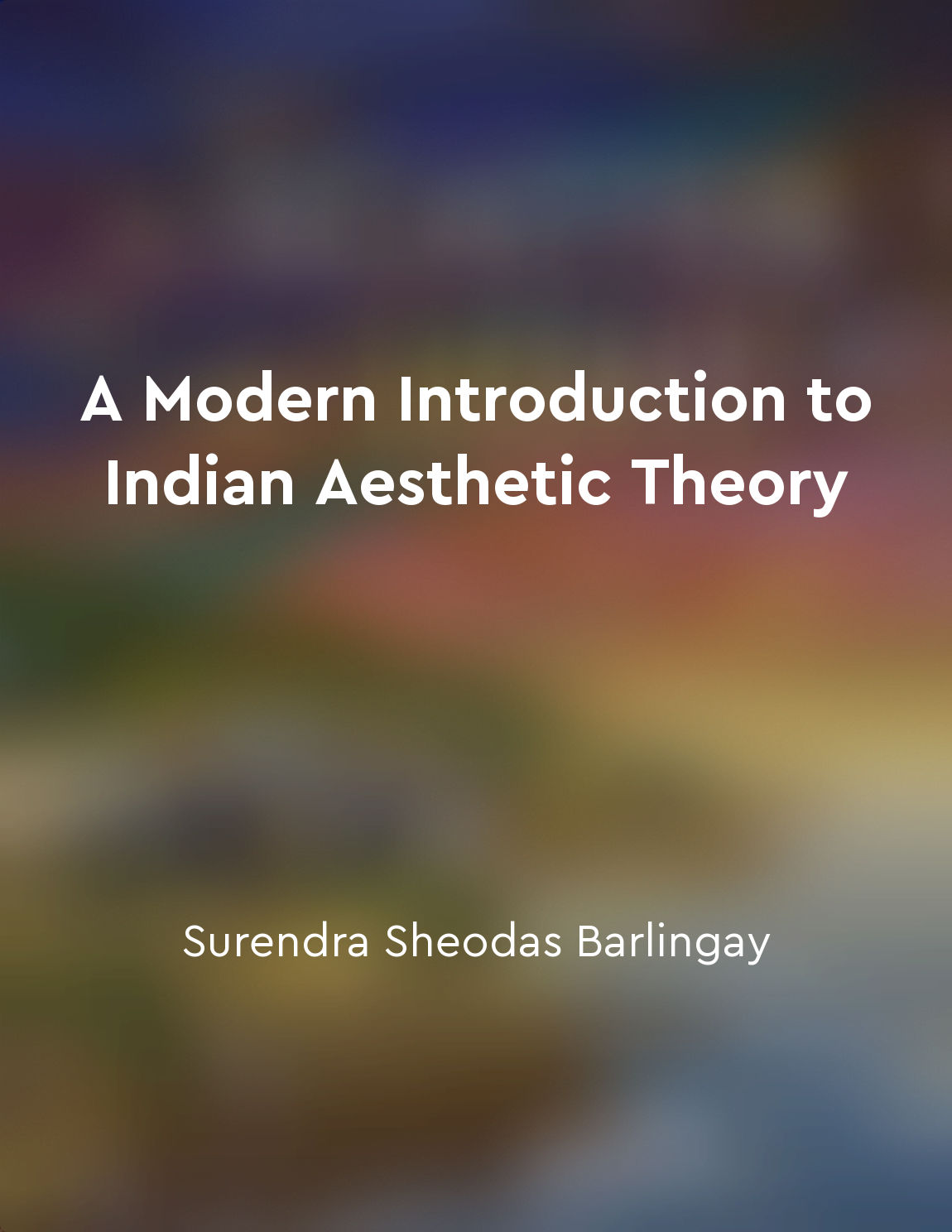Rasa as a universal language of emotions from "summary" of A Modern Introduction to Indian Aesthetic Theory by Surendra Sheodas Barlingay
Rasa, as a universal language of emotions, plays a crucial role in Indian aesthetic theory. This concept suggests that emotions are at the core of any artistic experience and can be universally understood and appreciated by individuals, regardless of their cultural background or personal experiences. It is believed that certain emotions, or Rasas, such as love, anger, fear, and joy, are fundamental to human existence and can be effectively communicated through various art forms. In Indian aesthetic theory, the experience of Rasa is considered to be the ultimate goal of any artistic creation. Artists strive to evoke specific emotions in their audience, aiming to create a shared emotional experience that transcends individual differences. Through the use of various artistic elements such as music, dance, drama, and literature, artists can effectively communicate the essence of a particular emotion and create a profound impact on their audience. The concept of Rasa is rooted in the belief that emotions are a fundamental aspect of human nature and can be experienced and understood by people from all walks of life. By tapping into these universal emotions, artists can create a powerful connection with their audience, eliciting a deep and meaningful response that goes beyond mere intellectual appreciation. This idea of Rasa as a universal language of emotions highlights the ability of art to transcend cultural boundaries and speak to the fundamental aspects of the human experience. Furthermore, the concept of Rasa emphasizes the importance of empathy and emotional engagement in artistic appreciation. By immersing themselves in the emotional world of the artwork, audiences can develop a deeper understanding of the human experience and cultivate a sense of emotional connection with the artist. This emotional resonance can lead to a more profound and meaningful artistic experience, allowing individuals to explore their own emotions and gain insight into the complexities of the human psyche.- The concept of Rasa as a universal language of emotions underscores the power of art to evoke and communicate universal feelings and experiences. By tapping into the fundamental emotions that define the human experience, artists can create a profound and lasting impact on their audience, fostering a sense of emotional connection and empathy that transcends cultural boundaries and personal differences.


